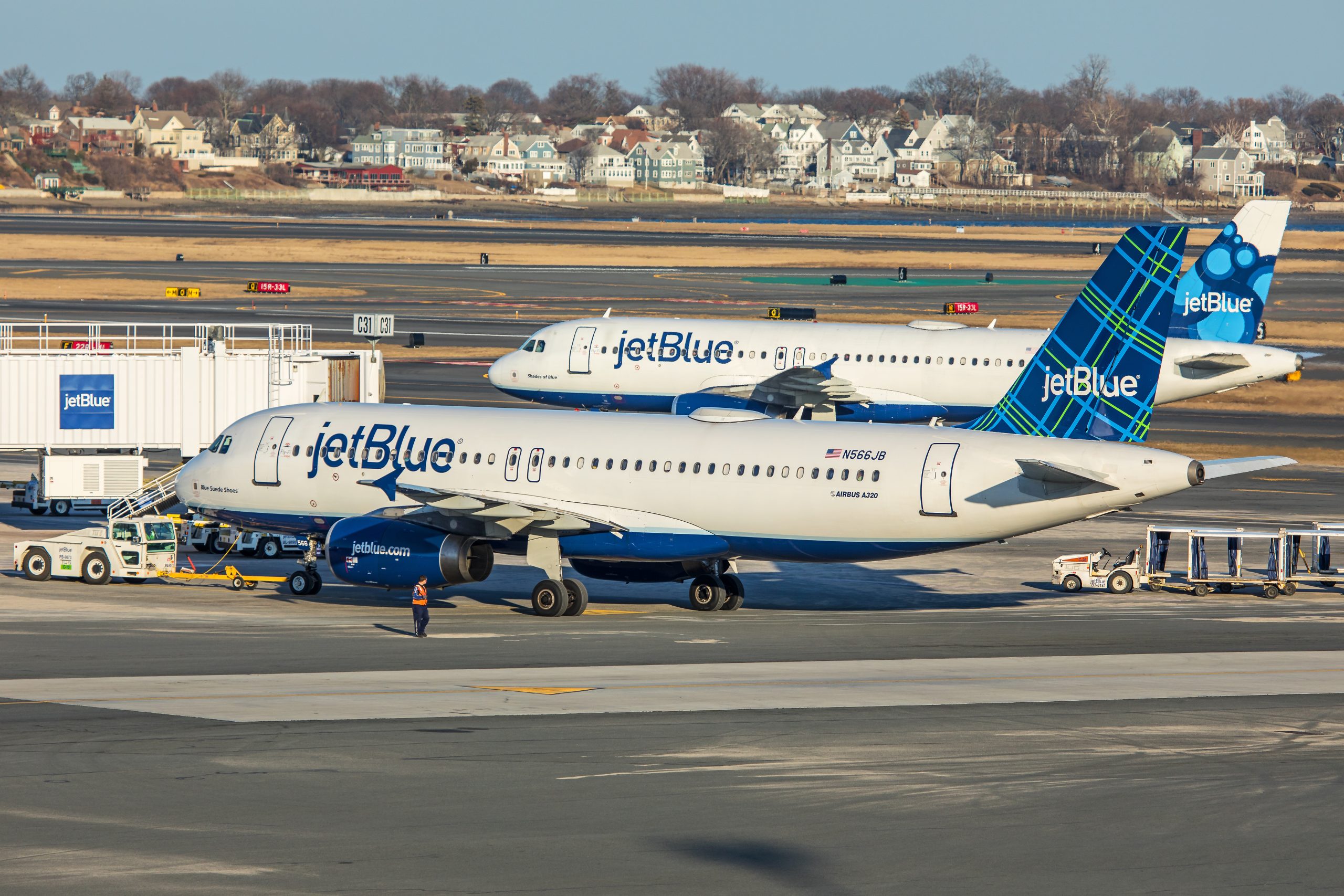
JetBlue Reveals Diminished First Quarter Earnings
On Tuesday, JetBlue announced that it has adjusted its annual revenue forecast. The carrier announced that its revenue will be…

Alitalia’s first flight to Washington Dulles in 2019 (Photo: AirlineGeeks | Ben Suskind)
The new life of Alitalia as an again-state-owned carrier has not even started yet, and there is already a bump in the road ahead for the Italian flag carrier. The European Union Commission Vice President Margrethe Vestager appears to be inclined to reject the plan proposed by the Italian government to regain control and ownership of Alitalia through a capital injection of over 3 billion euros ($3.39 billion), Italian financial newspaper Il Sole 24 Ore reported last week.
The plan would see the existing airline, which declared bankruptcy in May 2017 and has been operating under special administration ever since, being handed over to a “New Company” created by the Italian government. A special decree by Prime Minister Antonio Conte, approved on March 18, to support the national economy during the COVID-19 emergency, reserved 500 million euros for the creation of this new company that would subsequently receive a capitalization of at least 3 billion euros.
However, Il Sole 24 Ore reports that investigators in Brussels are not in favor of the operation since it would not provide sufficient “financial discontinuity” between the old Alitalia and the new company, and this would trigger a violation of E.U. rules with regards to state aids.
Several other airlines in Europe, from Lufthansa to KLM to Air France, have received loans and cash injections from their respective governments during the past few weeks to survive the dramatic drop in demand caused by the COVID-19 emergency, but the EU is inclined not to allow Alitalia to receive any more cash handouts since it was already under special administration even before the start of the pandemic.
Furthermore, it has been confirmed that investigations on the previous “bridge loans” received by Alitalia for the amounts of 900 million euros in May 2017 and 400 million euros in December 2019 are still ongoing and will evaluate whether those interventions on behalf of the Italian government were legal under EU rules on state aid.
This is likely to halt progress for Alitalia Special Administrator Giuseppe Leogrande and Italian Minister for Economic Development Stefano Patuanelli. Their plan to have the “New Company” lease the handling branch of Alitalia along with the flight operations, while leaving the handling unit in the “Bad Company”, does not appear to have the blessing of Brussels.
Going forward, that may have significant consequences on the employment levels of the new company. Alitalia’s ground handling branch in its Rome Fiumicino hub has 2,800 employees, while approximately 6,800 of the 11,000 employees of the Alitalia flying unit are currently furloughed until Oct. 31 and receiving government-backed unemployment benefits equal to 80% of their salary.
A new plan that would be deemed acceptable by the EU would require at least until September to be ironed out, but Alitalia is quickly running out of cash: the 400 million euros the Government anticipated in December to see the airline through the sales process, which was due to end by May 31, are almost over, burned at an unprecedented level by the 90% drop in demand experienced during the months of the COVID-19 emergency.
The deadline, which was specified by the government at the emission of the 400 million euro loan, has now passed, but Alitalia is still run by Leogrande, and it appears unclear what the next move is going to be to ensure operational continuity.
On a formal level, the “New Company” does not exist yet, since it has to be formed by a special act of the government using the funds already made available. But for the time being, there is no “plan B” ready, and there is no clarity on who is going to lead the new Alitalia. According to the Italian press, the person that is most likely to be nominated new CEO of Alitalia is Alfredo Altavilla, formerly an executive at Fiat Chrysler Automobiles.
The Italian carrier is progressively reducing its fleet, and should shrink from the 113 aircraft operated in 2019 to approximately 92 going forward. However, the government plan currently has no provision as to the industrial strategy of the carrier that on May 21 officially exited the immunized SkyTeam transatlantic joint venture and is now “flying solo” in the North Atlantic market against the other immunized joint ventures operated by the three main alliances.
Vanni fell in love with commercial aviation during his undergraduate studies in Statistics at the University of Bologna, when he prepared his thesis on the effects of deregulation on the U.S. and European aviation markets. Then he pursued his passion further by obtaining a Master’s Degree in Air Transport Management at Cranfield University in the U.K. followed by holding several management positions at various start-up carriers in Europe (Jet2, SkyEurope, Silverjet). After moving to Canada, he was Business Development Manager for IATA for nine years before turning to his other passion: sports writing.
Receive a daily dose of the airline industry's top stories along with market insights right in your inbox.

On Tuesday, JetBlue announced that it has adjusted its annual revenue forecast. The carrier announced that its revenue will be…

Royal Air Maroc and Safran have deepened their collaboration in aircraft engine maintenance. In celebration of its 25th anniversary, Safran…

The importance of the North American market to Fiji Airways has been further highlighted with the announcement of an interline…



